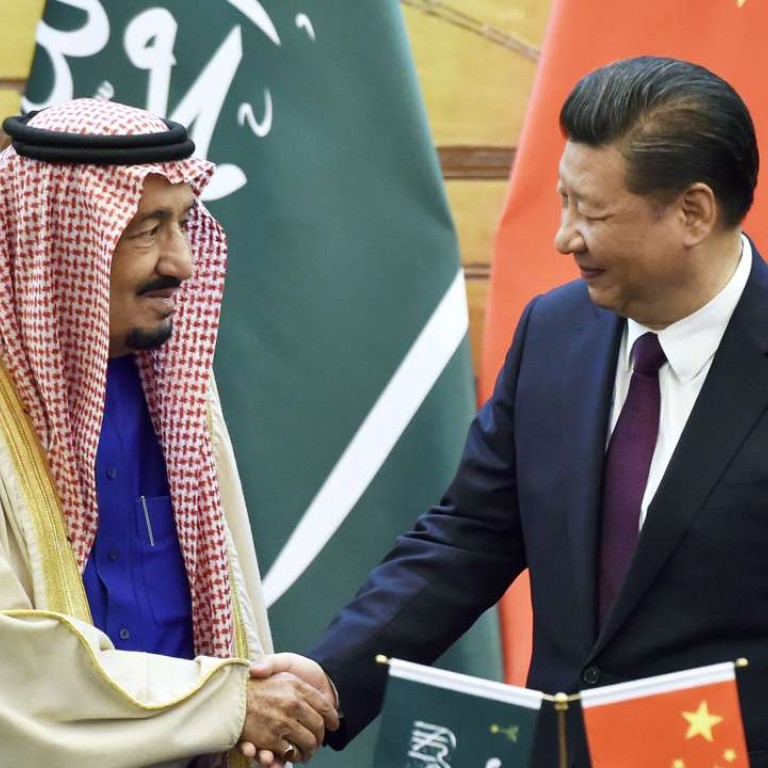
China’s deepening ties with the Middle East a benefit to all
There are many areas to cooperate, particularly under the “One Belt, One Road” trade initiative, and Beijing can lend its weight to peace efforts in a troubled region
Visits to Beijing by either the Saudi king or the Israeli prime minister with high-powered delegations would be events to be watched carefully at any time. But President Xi Jinping’s talks in quick succession with both Saudi Arabia’s King Salman and Israeli Prime Minister Benjamin Netanyahu highlight China’s efforts to develop deeper ties with a region fraught with volatile and complex politics. The political and economic implications are far-reaching.
Saudi Arabia and Israel have been considered two of Washington’s most important allies in the region, while China’s dealings have been largely limited to oil and energy. Now both sides have begun to realise there are many areas in which they can cooperate to advance their mutual interests. As a result the two have come to China to talk about how to upgrade bilateral ties.
China has been signing a lot of new trade and economic deals in the Middle East. It will continue to grow its involvement in the region, guided by a policy of political even-handedness in dealing with pivotal powers Iran, Israel and Saudi Arabia. Unlike the US and European powers, including Russia, Beijing is fortunate to be able to engage with the region as a power broker without baggage. For example, this enables Xi to push the troubled two-state solution to the Israeli-Palestine conflict without appearing to take sides.
Now that the Middle East is no longer just a source of energy – critical though that is, relations with the region are important for China, which sees it playing a big role in the “One Belt, One Road” infrastructure and trade initiative. Israel may have no oil, but it is a superpower in agricultural technology and an important supplier to China of military technology, as well as being a leader in sub-sectors of technology, biotechnology and an incubator for many start-ups. Israel also sees its prowess in fintech as having great potential in China’s huge market. Indeed, technological progress was the main agenda of the four-day trip.
The commercial and economic implications of Netanyahu’s visit should not be underestimated. Evidence of that was an unusual official invitation to 10 heads of large corporations, including those of big tech firms, to join a government breakfast meeting with the Israeli prime minister. This cannot have gone unnoticed in the US, with its sanctions on hi-tech exports to China. Ironically, both Saudi Arabia and Israel have been motivated to deepen relations with China by clouded relations with the previous US administration of Barack Obama, and uncertainties posed by his successor, President Donald Trump. At the same time, the Middle East is crucial to the belt and road initiative, creating the conditions for all sides to pursue Beijing’s foreign policy ideal of “win-win” strategies.

